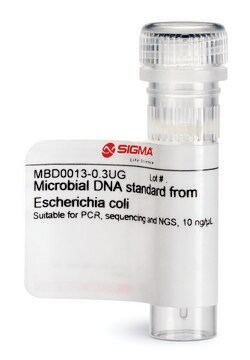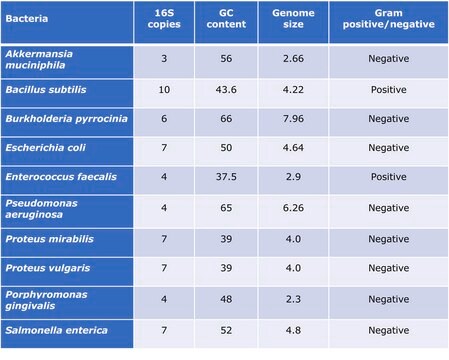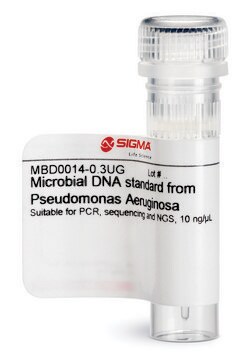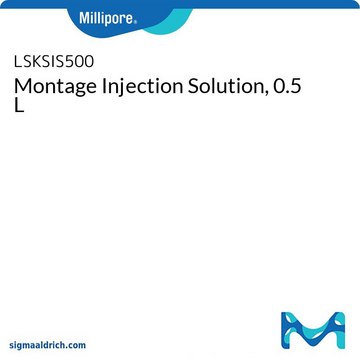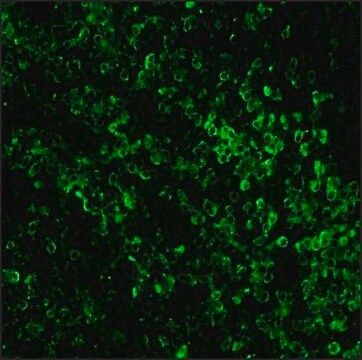MBD0005
Microbial DNA standard from Salmonella enterica
Suitable for PCR, sequencing and NGS, 10 ng/μL
About This Item
Empfohlene Produkte
Qualitätsniveau
Form
liquid
Konzentration
10 ng/μL
Methode(n)
DNA extraction: suitable
DNA sequencing: suitable
PCR: suitable
Versandbedingung
ambient
Lagertemp.
−20°C
Allgemeine Beschreibung
Salmonella enterica serotype Typhimurium (also S. Typhimurium) is a rod-shaped gram-negative bacterium of the family Enterobacteriaceae. It is an important food-borne pathogen that in humans causes intestinal inflammation, diarrhea, and the presence of neutrophils in stool samples.2 Growth of S. enterica in the gut lumen causes depletion of the healthy microbial community.3 Infection with Salmonella can induce inflammation and increase the risk for inflammatory bowel disease (IBD)4
Read here how to use our standards to ensure data integrity for your microbiome research.
Anwendung
Leistungsmerkmale und Vorteile
- Individual microbial standard for microbiomics and meta-genomics workflow
- Suitable standard for PCR, sequencing and NGS
- Improve Bioinformatics analyses
- Increases reproducibility
- Compare results lab to lab
Physikalische Form
Sonstige Hinweise
Lagerklassenschlüssel
12 - Non Combustible Liquids
WGK
WGK 1
Flammpunkt (°F)
Not applicable
Flammpunkt (°C)
Not applicable
Analysenzertifikate (COA)
Suchen Sie nach Analysenzertifikate (COA), indem Sie die Lot-/Chargennummer des Produkts eingeben. Lot- und Chargennummern sind auf dem Produktetikett hinter den Wörtern ‘Lot’ oder ‘Batch’ (Lot oder Charge) zu finden.
Besitzen Sie dieses Produkt bereits?
In der Dokumentenbibliothek finden Sie die Dokumentation zu den Produkten, die Sie kürzlich erworben haben.
Artikel
The use of standards is critical to the integrity of metagenomics research. Learn how DNA standards for bacteria, fungi, and viruses are applied to studying the microbiome. Choose standards for E. coli and other key species, as well as mixed community standards.
Unser Team von Wissenschaftlern verfügt über Erfahrung in allen Forschungsbereichen einschließlich Life Science, Materialwissenschaften, chemischer Synthese, Chromatographie, Analytik und vielen mehr..
Setzen Sie sich mit dem technischen Dienst in Verbindung.
